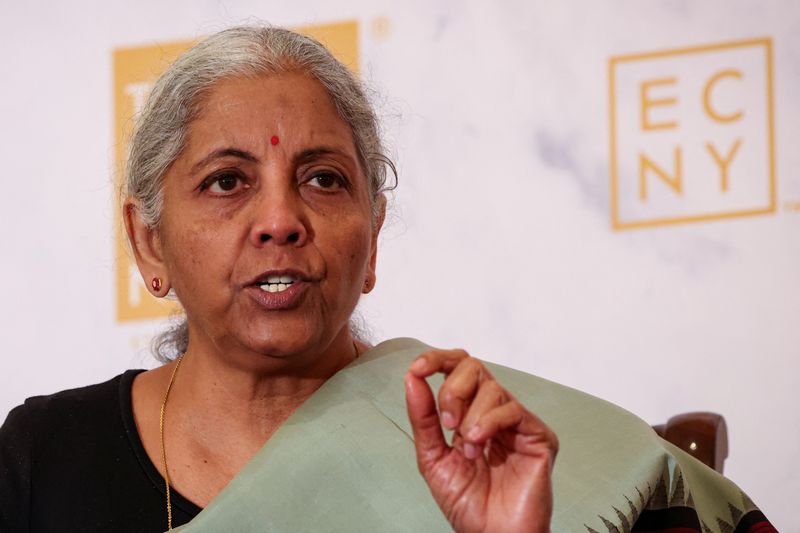
By Sarita Chaganti Singh and Mayank Bhardwaj
NEW DELHI (Reuters) – India is likely to raise spending on food, fertiliser, and cooking gas subsidies to 4.1 trillion rupees ($47.41 billion) in the next fiscal year, government sources said, a moderate 8% year-on-year increase to cover higher food and energy costs.
Indian Finance Minister Nirmala Sitharaman will present the national budget on Feb. 1, amid slowing growth in Asia’s third-largest economy and rising global uncertainties.
The latest economic slowdown has been largely attributed to weakness in urban regions and investments from companies. The rural economy where a large part of the major subsidies are deployed is showing signs of recovering and sustaining subsidies will be a key support.
The government has estimated its food subsidy bill to increase by about 5% for the next fiscal year that starts April 1 to nearly 2.15 trillion rupees ($24.86 billion), one of the sources said.
Higher rice purchases from farmers and rising storage costs are expected to push up next year’s food subsidy, the source said.
The budgeted outlay for food subsidies in the current financial year ending March 31 is 2.05 trillion rupees ($23.70 billion).
Subsidies, including food, fuel and fertilisers, accounted for about 8% of the country’s total annual spending of $557 billion for the current fiscal year.
The government is also expected to allocate nearly 250 billion rupees ($2.89 billion) for subsidies towards cooking gas, the second source said, up from 119 billion rupees ($1.38 billion) in the current fiscal year.
The fertiliser subsidy for the next financial year is likely to be retained at the current year’s level of 1.7 trillion rupees ($19.66 billion), a third source said.
India’s finance, food and fertiliser ministries did not immediately respond to separate emails seeking comment on the subsidies.
($1 = 86.51 rupees)
This post is originally published on INVESTING.


